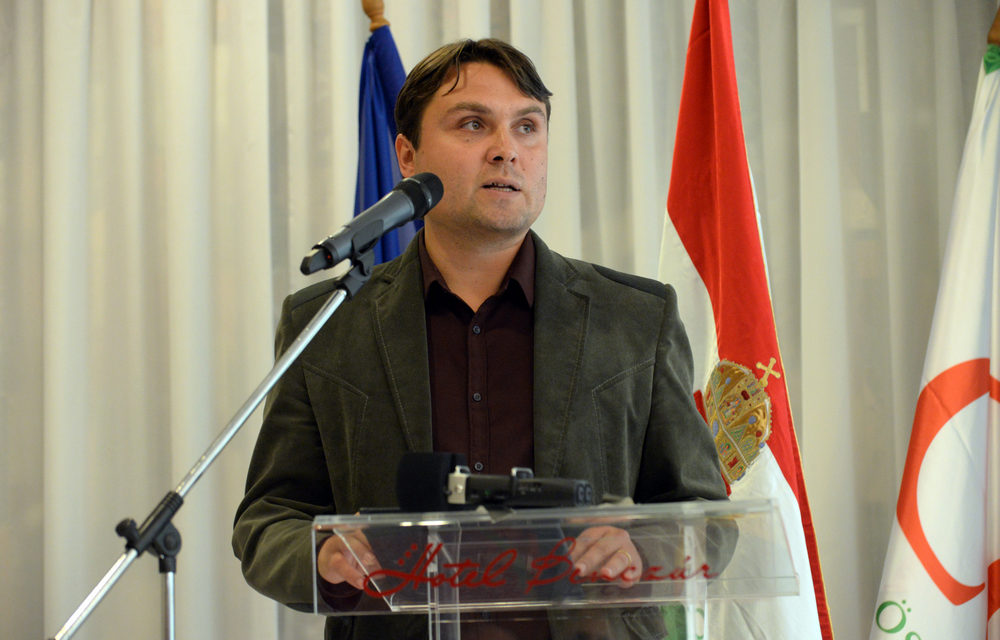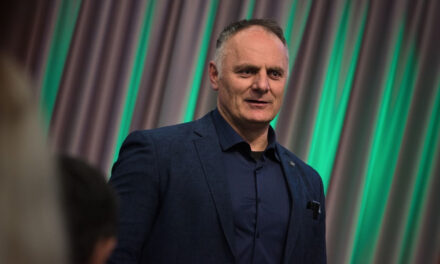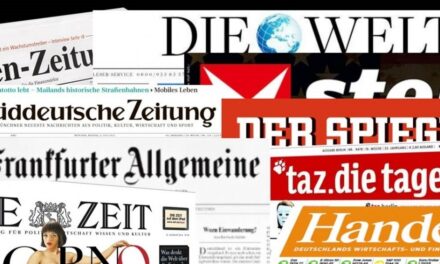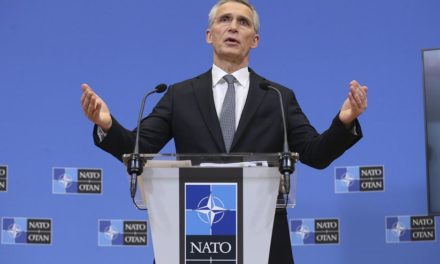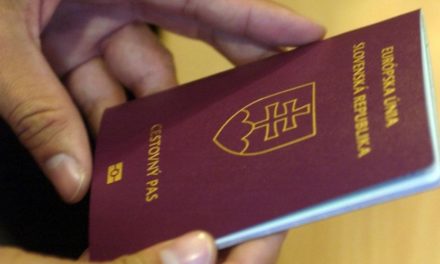László Gubík, president of the Alliance for Common Goals and ViaNova, and founding director of the Esterházy Academy, gave a lecture entitled Reclaiming Europe at the conference of the European Civil Cooperation Council on October 15. His speech is based on the three pillars that support our future: Christian democracy, regionalism, and the protection of indigenous communities. Below is an edited version of the text of the presentation.
Reclaiming Europe
I came to you from the land of the "citizen of Kassa", Sándor Márai, the "white Pelé" of Tardoskéd, György Szikora, and the martyr and servant of God János Esterházy from the Zobor region. I am Hungarian from the highlands.
I believe and confess the eternal thought of Áron Tamási from Székely: "We are in the world to be at home somewhere in it". I consider the Highlands my home. By being born here, I became and remained Hungarian and European.
Our birth and origin define us all. He gave me the gift of being a double minority. As a Hungarian born in Czechoslovakia, I became a numerical minority, and unlike my compatriots from Csallóköz, Bodrogköz or Dül-Gömör, I always lived in a minority in my hometown, Léva, and in my region, the historic Bars region. However, I experienced this state not as a curse, but as a blessing in my childhood, if you like, it hardened me.
Already as a student, I discovered through him the three values on which Europe is built, and which the "old continent" should never forget. These three concepts form the central idea of my presentation. With them, Europe can remain a land of education and wealth, without them the world will turn into a value-neutral gray zone.
Christian democracy. Regionalism. Protection of indigenous communities (mocked as: protection of minorities). In possession of these, our material growth does not become a chore, and the preservation of our education becomes pointless.
Let's start from the back, with the protection of indigenous communities .
Out of Léva's nine elementary schools, I went to the only educational institution where the teaching language was Hungarian, and then to the only high school where I could study in my mother tongue. If this is not given, I am a different person today and one of the main pillars of my European identity, my national identity, would be undermined. I am grateful for all of this, but this is not a charity given by a majority nation, it is deserved, and even more than that is deserved. Because
what kind of Europe is it that does not advocate and guarantee the growth of its own national communities, regardless of current state borders? Weak Europe.
In August, the President of the Hungarian Parliament, László Kövér, inaugurated the memorial to the displaced Hungarian and German citizens from Somorja in Upper Csallóköz, accompanied by the following words: of the right to national identity, and we raise this to a part of universal human rights."
I deeply agree with the content of this thought, because it would no longer be possible to relativize and leave the matter of native national and linguistic communities to the wise generosity of the member states or, on the contrary, to the fulfillment of their nation-state-building intentions.
More than 50 million EU citizens, one in seven people in the EU, live in such a fate, most of them as a result of faulty political decisions and peace dictates driven by revenge, without any foresight.
Europe owes it not to them, but to itself, by creating a comprehensive system of rules that promotes the status, legal protection and financial support of indigenous national and language communities. It is shameful that in January of this year, by rejecting the National Minority Safepack, the European Commission abdicated the responsibility of this noble and necessary task, mocking the institution of direct democracy and disregarding the will of a million Europeans.
Let me give you another, partly personal, but at the same time general example: my little girl was born 3 years ago as a descendant of war criminals. In Komárom, on the Hungarian-Slovak border. This can still happen in the 21st century. Isn't that a bit mind-boggling? Speaking of the future of Europe, I am forced to note that I envision a Europe that does not care that babies are indirectly war criminals.
All it takes is for us to forget to see each other as winners and losers in war. Because if that doesn't happen, we all lose the future.
I understand that the presidential decrees of Edvard Beneš are the laws defining Czechoslovak statehood after the Second World War, and as such they play a significant role in Czech and Slovak public law at the time.
But on the one hand, Czechoslovakia is no more, on the other hand, almost 8 decades have passed since the war, and on the third hand, the 13 decrees declaring the collective guilt of entire ethnic groups - which openly violates the principle of the prohibition of discrimination, the inviolability of property, the prohibition of forced labor and many other fundamental rights of the European Union A legal principle formulated in its charter - is its abolition, accompanied by an appropriate level of apology and accompanying rehabilitation, really such an impossible task?
Because I want a Europe where such stigma cannot be a matter of interpretation, a subject of debate, or something that can be swept under the rug, but rather it is our self-evident and natural duty to settle it.
Being European also means taking responsibility for our mistakes and striving to make decisions that are not self-serving and bring short-term benefits, but that result in just, long-lasting peace and prosperity.
And one of the most important areas of this is precisely the priority treatment of the rights of indigenous communities, which is why I dare to call the protection of minorities for them and for us one of the 3 most important pillars from the point of view of the future of Europe.
The next pillar is regionalism.
In my hometown, I quickly discovered the power of regional identity. I will never be Slovak, my Slovak friend will never be Hungarian, but we both consider ourselves to be Barsians, or from Garam as the case may be.
Regionalism is the common denominator of European peoples. And European policy can and should be built on this realization.
Of course, I do not intend to say that national self-awareness would become redundant, because nothing can replace it. I'm just pointing out that geographical, landscape, lifestyle and custom identities also shape the collective consciousness and can emerge as a natural organizing principle.
Regionalism can occur within a state, across state borders or, where appropriate, between states. But its potential can only be realized if organically related areas are connected.
Staying with the domestic examples, a resident of Dunaszerdahely today belongs to Nagyszombat county according to the regional administrative classification. Just like a resident of Szakolca. What does a farmer in Csalloköz have to do with a forester in the forest? Both would deserve to live in an administrative area identical to their natural conditions and historical traditions, and the state would have its own well-understood interest in building its administrative system on this legitimate demand from European traditions. In better places, this can be called autonomy.
Let us take Felső- and Alsó-Bodrogköz as an example of regionalism that crosses state borders. Despite the fact that the region has been separated by small and large interruptions for 101 years, a person from Királyhelmec will still be able to communicate more easily with a person from Sárospataki than a person from Bratislava in 202 years.
Perhaps this is the area where most good examples can be cited. Throughout its history, the European institutional system has launched the most successful programs and projects in the field of cross-border cooperation.
Viktor Orbán is now trying to fill Visegrád cooperation dreamed up by Róbert Károly and revived by József Antall with a Despite the many differences, the nations of this region are once again dependent on each other, only now it is not necessary to unite against vulnerability to German-Roman power or because of the fall of the communist regime, but rather to redefine a Europe that has lost its image and mission in neopagan liberalism.
Personally, I can support this initiative not only because of worldview convictions or a sense of historical identity, but also because
my community, the Hungarians of the highlands are the most Visegrád community, and therefore important tasks await us in the nearest future. We are the ones who live in the geographical center of this region, we are the ones who can speak to everyone in their mother tongue, and in the person of János Esterházy, we gave the apostle of the peoples of Visegrád,
the "most Central European" political thinker, the politician labeled the most honest of the 21st century by Foreign Minister Karel Schwarzenberg.
Another political thinker from the Highlands, present here today, put it this way in 1991, 30 years ago. I quote Miklós Duray: "We currently know three types of European organizational ideas: the Europe of states, the Europe of nations and the Europe of regions.
"The Europe of states is actually a union of states", which, however, is afraid that it may become a supranational organization over time.
"The Europe of nations is based on the organization of nation-states", however, it would be more correct to use the term nation-states instead of nation-states, since many historical and contemporary negative examples of nation-state aspirations can be cited. Believe me, we Hungarians across the border know what we are talking about.
"The Europe of the regions is meant to replace the idea of the Europe of the nations where it is not applicable, for example in Central Europe. When the Europe of the regions is realized, units will naturally be created that will be designed to resolve the aforementioned tensions. In addition to solving local economic and political problems, this will be the future direction that may bring a solution for us, the national minorities. One that is outside of separatism, irredentism and all the suspicions that have been mentioned about us so far. A natural economic and landscape unit organization can emerge that does not require the rearrangement of borders, but at the same time reconnects historically and economically connected areas despite the existing state borders."
From here I would turn to the third and at the same time most important pillar, Christian democracy .
According to József Antall, "In Europe, atheists are also Christians." In a part of the world where Sunday is the day of rest for most people, where even atheists count our time from the year of Christ's birth, where everyone speaks the name of Jesus at the last moment before an accident, well, in principle there is no need to explain who we are and what holds us together.
In the Christian culture, we became one by preserving our differences. In terms of spiritual history, the line of Gothic churches is the limit, but as our Christian brothers, we also look at Orthodox onion domes.
Everything that is the opposite or negation of the teachings of the Christian culture is outside our culture.
Because from this comes the subsidiarity that declares the self-determination of the local small community, the equality between man and man, the acceptance of cultural diversity realized in peaceful coexistence and without subordination, the idea of universality, the pursuit of social justice, or, in the absence of this, the command of fairness or precisely the respect of the dignity of women.
In the first half of the last century, we saw what happens when, instead of Christian teaching, the commands of foreign ideologies become the guiding principle of European life. Even today, we should not flirt with the idea of a Europe without families, local communities, nations and Christianity. Quite simply, because it is not functional and because by giving up all this, it can no longer be called Europe.
The Western European cooperation after the Second World War was based on Christian principles, and was established primarily not for their protection, but for the creation of a common economic space. But the great Christian Democratic politicians of the time formulated the foundations of the economic cooperation to be established in the spirit of reconciliation, mutual trust and solidarity, which started the process of European integration. Without this, without the Christian approach rejecting enmity, which became a part of their politics based on the terrible experiences of the anti-Christian behavior of Nazism and Communism, the European Union could hardly have been formed, which extended to most of Europe until Brexit. Today, however, the moral aspects are increasingly being left out of the cooperation, and the economic and financial aspects are gaining weight - parallel to this, the centralization efforts are getting stronger, which is why the project has stalled and is crying out for a restart.
One of the founding fathers recently earned the title of "venerable" from the Holy See, which is the first step on the path to canonization. Is it a coincidence that Christian democracy, regionalism and minority protection became one in Robert Schuman's life?
Born in Luxembourg, speaking his mother tongue with a German dialect, persecuted by the Gestapo from Lorraine, whom XII. The ideas of Pope Pius and Jacques Maritain were influential, and it was not necessary to explain very much what the European idea is based on.
It is no different today. The stolen Europe can only be recovered by those who are able to formulate long-term goals, know or at least understand what it means to live in a dictatorship, discover the potential of regional cooperation, and admit that there is no viable organizing principle outside of the Christian cultural circle.
I believe these are us!
Source: aelvidek.ma
Photo: CÖF

